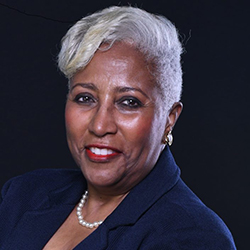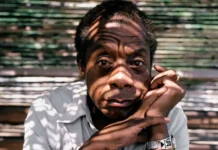This article was originally published on wordinblack.com
By Sonny Messiah Jiles
Juneteenth is a celebration of freedom, Black history, and Black culture. But what if we redefined it as a time to recalibrate or change the way we think about it?
Juneteenth (June 19) originated in Texas in 1865 when Gen. Gordon Granger announced General Order No. 3 in Galveston that “all slaves were free.” That was two and a half years after President Abraham Lincoln signed the Emancipation Proclamation into law effective January 1, 1863.
As historians note, emancipation redefined the Civil War, shifting it from a struggle to preserve the Union to a focus on ending slavery and reshaping the historic conflict.
It’s commonly thought that enslaved persons in Texas and several other Southern states hadn’t received word about emancipation. But in reality, while the confederacy was still in power, the law wasn’t being enforced — until Gen. Granger and his 2,000 troops showed up.
Today, there has been a shift in this country due in large part to the impact of the murder of George Floyd, a native of my hometown of Houston, resulting in bright lights being shined on police brutality, injustice, racial inequities, white privilege and the two-tier system that exists in America.
As a result of that shift, Juneteenth officially became the eleventh federal holiday on June 17, 2021, after being signed into law by President Joe Biden.
The Proclamation on Juneteenth Day of Observance states:
“On Juneteenth, we recommit ourselves to the work of equity, equality, and justice. And, we celebrate the centuries of struggle, courage, and hope that have brought us to this time of progress and possibility….”
I acknowledge and applaud the courage, resilience, and fortitude of our ancestors and those who supported them. Their stories, told and untold, are woven into the fabric of America and captured within the pages of the Black Press. Members of the Black Press continue to report the TRUTH — and Word In Black publishers are at the forefront.
In telling the stories of our journey as a people, we have witnessed how our history — and current reality — show that we have experienced several societal shifts. I say it’s time for one more.
What if we as Black people utilized Juneteenth each year to collectively recalibrate on “one single issue” like the Freedom to Vote Act, the George Floyd Act, or the Sabika Sheikh Firearm Licensing and Registration Act.
Imagine using the post-Juneteenth summer conferences of organizations (civil rights, social, professional, faith, and Greek) to develop strategies around a single issue that creates grassroots-level advocacy amplified by cutting-edge communications. This coordinated effort by these groups would magnify what W.E. DuBois described as the “talented tenth.”
Can you visualize a single-issue campaign with a common message focused on politics, economics, media, faith, social and more by using different platforms from social media, digital, print, and electronic?
Why not ask corporations with sizable Black-market shares to use their political power (lobbying forces) to influence and move this single agenda issue to become law?
Why not showcase the importance of this single agenda issue by demonstrating our economic power for one day — or one week — and show what Black people and those who support the issue can do together?
Why not illuminate our social power by each individual committing to do one of the things proposed by the campaign?
These ideas of mobilization for change are not new. History has recorded those who have successfully used these methods to effect change: Mahatma Gandhi, Martin Luther King Jr., Cesar Chavez, Elizabeth Cady Stanton, and others.
So, this Juneteenth, let’s celebrate our Black culture and invite others to join us in recalibrating what this special historical day can mean as we confront the inequities of today and change tomorrow for us all.
Sonny Messiah Jiles is Defender Network CEO and publisher.
















